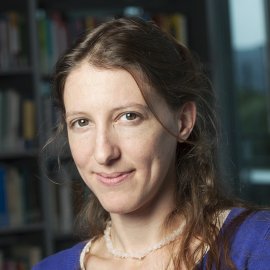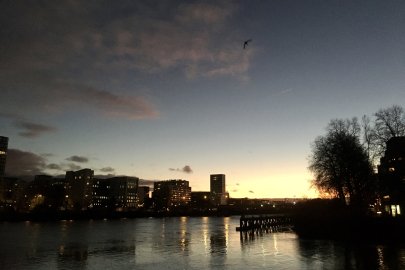History, Laboratoire Orient et Méditerranée UMR 8167, India

Octobre 2015 à Juin 2016
Dr. Sara Keller is a medieval historian and building archaeologist trained in France and Germany. In order to define complex socio-cultural contexts of the past, she explores a multidisciplinary approach based on the study of historical sources and the surveys of historical monuments and urban structures. She works since 2004 on the pre-modern architecture of northern India and specialized on the port cities of Gujarat and the East-West cultural and technological transfers which this cities host since several millennia. Dr. Sara Keller is affiliated researcher at the French Research Unit 8167 “Orient and Mediterranean” and at the Department of History of the Maharaja Sayajirao University of Baroda (Gujarat, India). She surveys the architecture and urban structures of the port towns of Gujarat (see the APIM data base) and leads actions for the diffusion of contemporary researches on past Indian ports and their impact for the commercial and cultural activity of the Indian Ocean.
"French-Indian Relationship. Surat the forgotten comptoir (1668-1787)"
Surat stands as the pioneer step of the French presence in India. The dynamic port of the westernIndian coastline already used to receive the visit of numerous missionaries and French travelers while the Compagnie Française des Indes Orientales (CFIO) decided in 1668 to found there the first French factory in India. Though this factory remains rather unconsidered in the bibliography, it played a major role for the diffusion of French commercial, religious and cultural initiatives in the Indian subcontinent. The research project “Surat, The forgotten factory (1668-1787)” questions the French print in the urban network of the port town of Surat, as well as its impact on the Eastern French politic during the 17th and 18th centuries. The project is based on one major historical source which remains as on today unexplored –the archives of the French Consulate in Surat conserved at the Center of diplomatic archives in Nantes. Sara Keller proposes a multidisciplinary study in order to answer questions related to the modality of the French presence in the port town of Surat, the impact of the creation of this factory for the CFIO, and its consequences in terms of cultural, technological and material transfers.
Sara Keller was the curator of an exhibition "Port Towns of Gujarat - Cités portuaires du Gujarat" linked to her project at the IAS-Nantes.
> Download the catalogue of the exhibition.
Volumes
Le Miroir du Gujarât, Etude Archéologique des Monuments Islamiques et Développement urbain d’Ahmedabad (Inde, XVe-XVIIIe siècle). Submitted to the publication section of Ecole Française d’Extrême-Orient, Paris. Approx. 185 p.
Knowledge and the Indian Ocean - Intangible Networks of Western India and Beyond, (ed.). Palgrave MacMillan, Palgrave Series in Indian Ocean World Studies. Expected: Dec 2018. Approx. 200 p.
Port Towns of Gujarat. Co-edited with Michael N. Pearson. Delhi: Primus Books, 2015, 328 p.
Articles
“Scholars in Gujarat’s Bazaars–Revisiting L’académie ambulante (‘The Roving Academy’).” With Fernando Rosa. In Sara Keller (ed.). Knowledge and the Indian Ocean - Intangible Networks of Western India and Beyond. Palgrave MacMillan. Palgrave Series in Indian Ocean World Studies. Expected: dec 2018. Chap.6, 18p.
“Rôle et outils de l’architecte dans le Gujarat muzaffaride (Inde, xve-xvie siècle), "Les mètres et le vers.” Arts Asiatiques. Tome 72, 2017, pp. 3-16.
"Surat, the first step of the French adventure in India.” RFIEA, Perspectives n°14, 2016, pp.8-9.
“Bharuch Fort during the pre Sultanate Period.” in M-F Boussac, J-F Salles, J-B. Yon, Ports of the Ancient Indian Ocean. Primus Books. New Delhi, 2016, pp.217-234.
“Bharuch, the City Fortress.” Port Towns of Gujarat, with Michael N. Pearson (eds.), Delhi: Primus Books, 2015, pp. 213-229.
